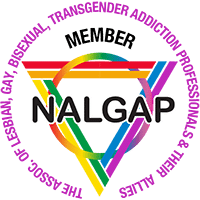Equine-Assisted Therapy, Denver
Discover Strength, Connection, and Confidence with Equine-Assisted Therapy at Mile High Recovery Center
Healing with Horses:
Equine Therapy in Denver, CO
At Mile High Recovery Center, we believe healing happens in many forms – and often, it begins with connection. Our equine therapy program in Denver offers a unique opportunity to experience personal growth and emotional healing through meaningful interactions with horses.
Whether you’re navigating addiction recovery or addressing mental health challenges, our therapy with horses can help you reconnect with yourself and others in powerful, unexpected ways.
What Is Equine Therapy?

Equine therapy – also known as equine-assisted therapy or horse therapy – is a therapeutic practice that includes guided interactions between individuals and horses, facilitated by trained professionals.
Unlike traditional talk therapy, equestrian therapy offers experiential learning and emotional insight through non-verbal communication, body language, and relationship-building with these gentle, intuitive animals.
At our equine therapy center near Denver, clients engage in structured activities with horses that foster trust, patience, and self-awareness – no horseback riding experience required.
The Benefits of Equine Therapy in Recovery
Horses are uniquely equipped to reflect human emotions and respond to our behavior in real time. This dynamic environment creates a safe space for self-discovery and healing.
Here are just a few benefits of equine therapy:
- Horses mirror human emotions, revealing patterns that contribute to addictive behaviors.
- Working with horses teaches patience that supports the long-term recovery journey.
- Group equine activities strengthen social skills often diminished during active addiction.
- Interacting with horses promotes mindfulness that helps resist cravings and triggers.
- Successful equine experiences reinforce belief in one's ability to maintain sobriety.
Whether you’re participating in equestrian therapy for mental health or as part of substance abuse recovery, the experience can be transformative.
Need residential treatment for addiction?
Take the first step towards recovery today.
Our team is ready to help you reclaim your life. Call now!

Why Choose Mile High Recovery Center for Equine Therapy?
As a leading equine therapy center in Denver, Mile High Recovery Center integrates horse riding therapy into our residential treatment model to support whole-person healing.
Our program is:
- Evidence-Based & Holistic: Equine therapy complements clinical treatments like DBT, EMDR, and CBT.
- Compassionate & Person-Centered: Facilitated by experienced therapists and support staff - many of whom are in recovery themselves.
- Accessible & Supportive: No prior horse experience is needed. All sessions are guided in a safe, welcoming environment.
- Fun & Empowering: Healing doesn’t have to be rigid. We believe in finding joy on the path to recovery.
Nestled in the heart of Denver, our proximity to Colorado’s natural beauty makes our equine therapy center the perfect place to reconnect with yourself and the world around you.
- Family Therapy
- Cognitive Behavioral Therapy
- Dialectical Behavior Therapy
- EMDR Therapy
- Adventure Therapy
- Relapse Prevention Therapy
- Group Therapy
- Acceptance And Commitment Therapy (ACT)
- Person-Centered Therapy
- Experiential Therapy
- Motivational Enhancement Therapy
- Psychotherapy
- Anxiety Treatment
- Bipolar Disorder Therapy
- Schizoaffective Disorder Treatment
- Alcohol Addiction
- Cocaine Addiction
- Benzodiazepines Addiction
- Opiate Addiction
- Stimulant Addiction
- Suboxone Addiction
- Vivitrol Addiction
- Ecstasy Addiction
- Xanax Addiction
- Hydrocodone Addiction
- Fentanyl Addiction
- Opioid Addiction
- LSD Addiction
- Marijuana Addiction
- Methamphetamine Addiction
- Ritalin Addiction
- OxyContin Addiction
Colorado Rehab | Real Recovery Stories
Resources
- https://www.webmd.com/mental-health/what-is-equine-therapy-equine-assisted-therapy
- https://www.verywellmind.com/equine-therapy-mental-health-treatment-4177932
- https://leapequine.com/wp-content/uploads/2020/04/Tramutt-J-Opening-the-Gate-Cultivating-Self-awareness-Acceptance-through-EFP.pdf
- https://pubmed.ncbi.nlm.nih.gov/28513182/
- https://equinewellnessmagazine.com/horses-mindfulness/


- Family Therapy
- Cognitive Behavioral Therapy
- Dialectical Behavior Therapy
- EMDR Therapy
- Adventure Therapy
- Relapse Prevention Therapy
- Group Therapy
- Acceptance And Commitment Therapy (ACT)
- Person-Centered Therapy
- Experiential Therapy
- Motivational Enhancement Therapy
- Psychotherapy
- Anxiety Treatment
- Bipolar Disorder Therapy
- Schizoaffective Disorder Treatment
- Individual Therapy
- Alcohol Addiction
- Cocaine Addiction
- Benzodiazepines Addiction
- Opiate Addiction
- Stimulant Addiction
- Suboxone Addiction
- Vivitrol Addiction
- Ecstasy Addiction
- Xanax Addiction
- Hydrocodone Addiction
- Fentanyl Addiction
- Opioid Addiction
- LSD Addiction
- Marijuana Addiction
- Methamphetamine Addiction
- Ritalin Addiction
- OxyContin Addiction
- Prescription Drug Addiction
- Valium Addiction
Reach Out Today to See How Mile High Recovery Center Can Help You Heal
If you or a loved one are ready to regain autonomy over your lives and well-being, recovery starts here. Let us guide you toward sustainable wellness and sobriety through our personalized treatment plans tailored to your unique needs and experiences. We look forward to hearing from you!


